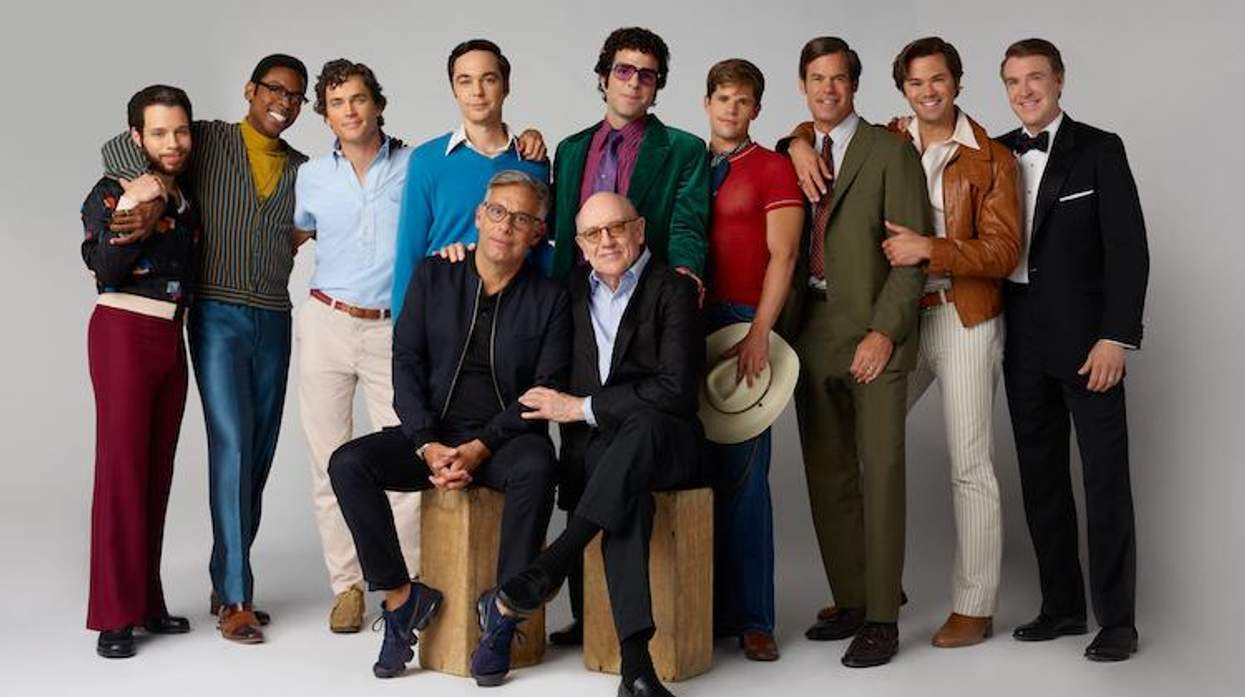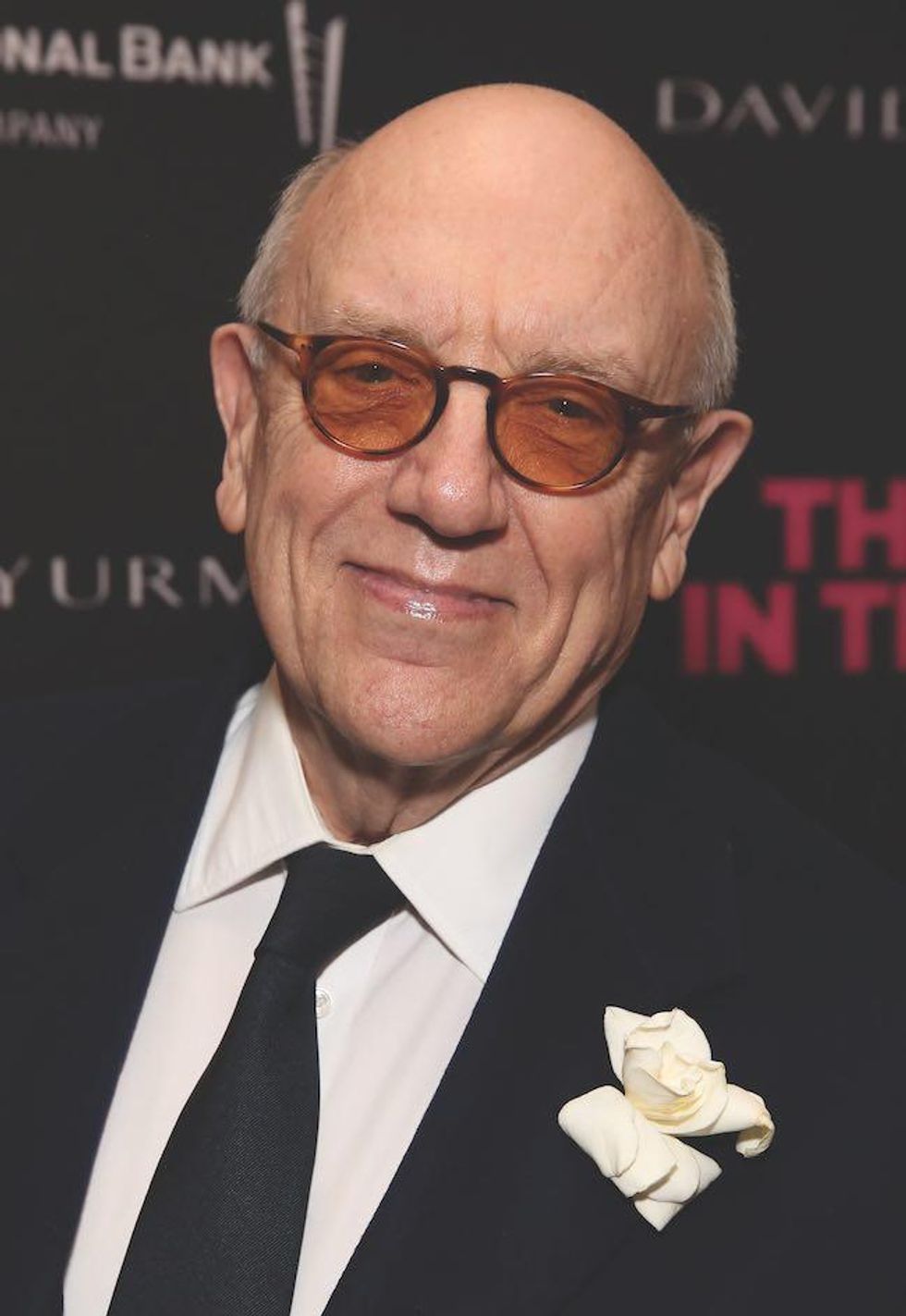The man behind the boys is finally getting the respect he deserves.
Some of it has come posthumously for Mart Crowley, the author of The Boys in the Band, who died in March at age 84, but he lived to see much of it. He saw his most famous play finally get a Broadway production and win a Tony Award (for Best Revival of a Play), and he knew that a Netflix film, with the full 2018 Broadway cast, all of whom are out, was in the works. The film will be released September 30, so his groundbreaking work will reach new audiences. There have been, of course, countless regional and community theater productions of Boys since its initial off-Broadway run, which began in 1968, and it was made into a movie in 1970, with all of the original cast and with Crowley writing the screenplay. But the Broadway staging and the Netflix film both have come at a time when Boys has been recognized as a classic.

Mart Crowley
LGBTQ+ people, especially gay and bisexual men, and their allies have had a fraught relationship with Boys. It depicts eight gay and bi men gathered for a birthday party where the liquor and the bitchy zingers flow freely, and conflicts escalate when the host's college chum, who claims to be straight but may simply be in denial about his queerness, crashes the event.
The play was a must-see for chic New Yorkers in the late 1960s, drawing the likes of Jackie Kennedy, Rudolf Nureyev, and Mayor John Lindsay, and it ran for 1,001 performances. But many in the gay community didn't think it was the best representation, as the characters are mostly dysfunctional people who are full of self-hatred, and they don't seem to like one another very much either, although they're fascinating to watch. Straight theatergoers "were so happy to be able to see people they didn't have to respect," gay playwright Edward Albee said in the 2011 documentary Making the Boys.
But it's clear -- maybe clearer from a 21st-century perspective -- that The Boys in the Band is an indictment of homophobia. While it's not a "message" play, it drives home that homophobia, both internalized and societal, is the reason so many of the men are self-loathing. Harold, the birthday celebrant, says to host Michael, "You're a sad and pathetic man. You're a homosexual and you don't want to be, but there's nothing you can do to change it." Crowley's work explores the toxic effects of racism, misogyny, and anti-Semitism as well.
One must also keep in mind that the characters aren't supposed to be role models. Happy, well-adjusted people don't make for good drama. Yes, some admirable traits do, such as heroism, and these men do exhibit a level of heroism, by simply being who they are and going on with their lives in a world that largely hates them. And Boys is indeed good drama.
Nor are they meant to represent all gay and bisexual men. They're city dwellers with a certain sophistication and a certain tendency to self-medicate, living in a time when homosexuality was still defined as a mental disorder. Crowley "claimed he did not know at the time that he was representing all of gay humanity," my friend and colleague Christopher Harrity, who knew Crowley well, recalled in an Advocate essay this year. "Because he wasn't." Crowley further told Harrity that he considered Boys to be more about alcoholism than about gay culture.
Still, for many theatergoers in 1968, it was their first glimpse at unabashedly gay characters. The men of Boys aren't coded; audiences don't have to read between the lines to see that they're romantically and sexually attracted to other men. They aren't "accused" of being gay only to prove their heterosexuality by a liaison with a woman. No one dies at the end. They aren't all the same type of gay; some are what was then called "effeminate," some stereotypically masculine. The show was undoubtedly an eye-opener.
Crowley went on to write many other plays, including a sequel, The Men From the Boys, and work in television; he was a producer on Hart to Hart, which starred his friend Robert Wagner. Wagner was married to of one of Crowley's closest friends, the great actress Natalie Wood, who encouraged him to write The Boys in the Band. And Boys remains the work for which he's best known, and Crowley apparently didn't mind. Seeing it come to Broadway and win a Tony "was the highlight of his life," Wagner told The New York Times upon the playwright's death.
In another piece in the Times, when the play was about to open on Broadway, Jesse Green wrote that it is "without doubt the first play in the American gay male theatrical canon" and that it retains its power. In its own way, he continued, it has been an agent of change, and its revival was "a triumph of liberation instead of an embarrassment to the liberators." There are those who disagree, but I'm not among them.
So thank you, Mart Crowley, for bringing these men to the stage and screen. Audiences have gained much from meeting them -- and more will.





































































Charlie Kirk DID say stoning gay people was the 'perfect law' — and these other heinous quotes